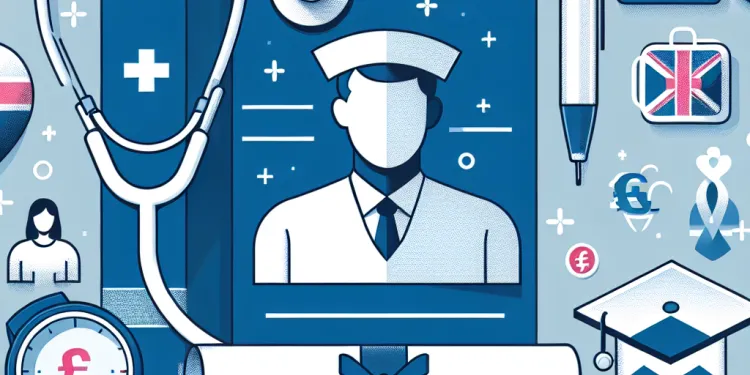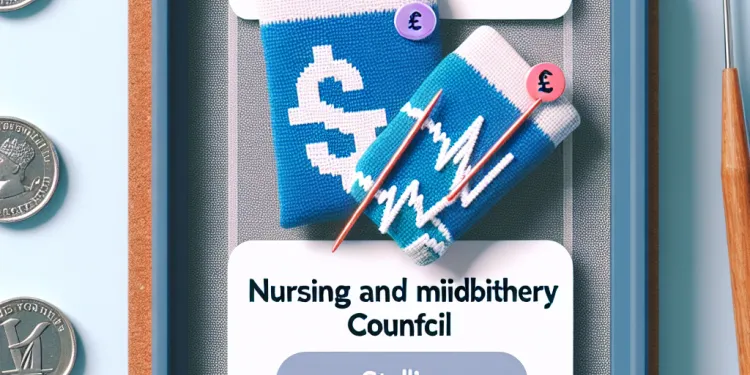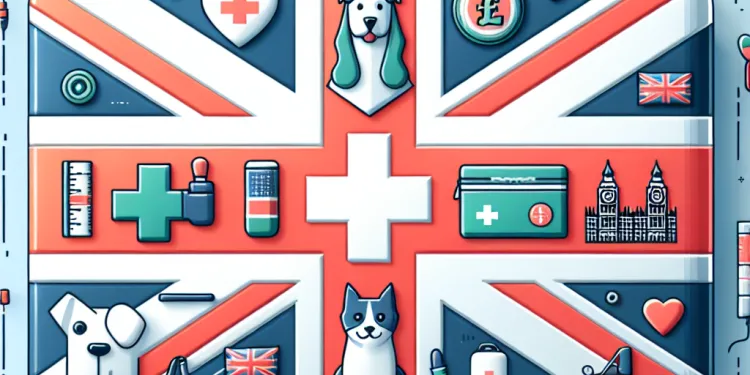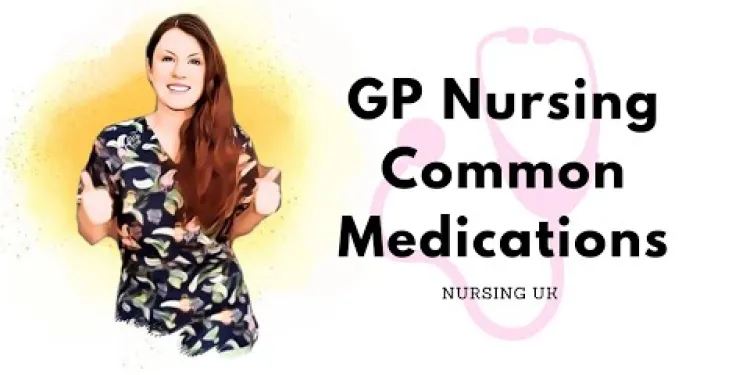
Find Help
More Items From Ergsy search
-

What is the process for applying to a nursing degree course?
Relevance: 100%
-

What types of nursing degrees can I pursue?
Relevance: 65%
-

How can I become an NHS Nurse in the UK?
Relevance: 55%
-

Can first aid courses be applied for college credit?
Relevance: 53%
-

Can I become a nurse in the NHS with a nursing diploma?
Relevance: 51%
-

How long does it take to become an NHS nurse?
Relevance: 50%
-

What are the basic educational requirements to become an NHS nurse?
Relevance: 49%
-

What funding options are available for nursing students in the UK?
Relevance: 46%
-

Is there a minimum age requirement to start nurse training?
Relevance: 44%
-

What GCSEs or A-Levels do I need to become a nurse?
Relevance: 44%
-

Is it possible to study nursing part-time?
Relevance: 44%
-

Are there academic courses for aspiring primary care support workers?
Relevance: 40%
-

Are there any apprenticeship routes to becoming an NHS nurse?
Relevance: 39%
-

What are the career progression opportunities for NHS nurses?
Relevance: 38%
-

What support systems are available to NHS nurses for continuing professional development?
Relevance: 38%
-

Can I become an NHS nurse if I have international nursing qualifications?
Relevance: 38%
-

Do I need to be registered with the Nursing and Midwifery Council (NMC) to work as an NHS nurse?
Relevance: 33%
-

What topics are covered in a first aid course?
Relevance: 31%
-

Are there first aid courses for pets?
Relevance: 31%
-

Can I take first aid courses in person?
Relevance: 30%
-

How important is work experience for entering a nursing program?
Relevance: 30%
-

The role of residential and nursing homes
Relevance: 29%
-

The role of residential & nursing homes
Relevance: 29%
-

Can part-time students apply for the £500 payment?
Relevance: 29%
-

What skills are important for a career in nursing?
Relevance: 29%
-

Do I need to bring anything to a first aid course?
Relevance: 28%
-

Is it recommended for seniors to take refresher driving courses?
Relevance: 28%
-

How do I choose a good nursing home?
Relevance: 27%
-

How are care homes different from nursing homes?
Relevance: 27%
-

UNDERSTANDING YOUR STUDENT LOAN: A GUIDE FOR ENGLISH STUDENTS STARTING AN UNDERGRADUATE COURSE 2023
Relevance: 26%
-

Is live-in care an alternative to nursing homes?
Relevance: 25%
-

Are there specific first aid courses for different professions?
Relevance: 24%
-

Can I specialize in a certain area of nursing with the NHS?
Relevance: 24%
-

Will I still have access to doctors and nurses on a virtual ward?
Relevance: 24%
-

GP Nursing Most Common Medications UK.
Relevance: 22%
-

Can I attend open days to learn more about nursing programs in the UK?
Relevance: 21%
-

Are there educational opportunities for seniors?
Relevance: 21%
-

What documents do I need to provide when applying?
Relevance: 20%
-

What qualifications does a chiropractor need?
Relevance: 20%
-

How do I apply for the EV grant?
Relevance: 20%
Understanding the Requirements
Before applying to a nursing degree course in the UK, it's essential to verify the entry requirements for each university, as they can vary. Typically, you'll need A-levels or equivalent qualifications. Most universities require at least a C grade in English and Maths at GCSE level. Some courses might also ask for a science subject at A-level. Additionally, relevant work experience in a healthcare setting can be advantageous.
Choosing the Right Course
The nursing profession in the UK offers a variety of specialisations, such as Adult Nursing, Children's Nursing, Mental Health Nursing, and Learning Disabilities Nursing. Prospective students should assess which area aligns best with their career aspirations. It's also beneficial to research different universities to determine which institution offers the best curriculum and facilities for your chosen specialisation.
Applying Through UCAS
The Universities and Colleges Admissions Service (UCAS) is the centralized service through which prospective nursing students in the UK apply. The application process usually starts a year before the intended start date. You will need to submit personal details, educational qualifications, and a personal statement explaining your interest in nursing. Most applications also require a reference from a teacher or employer.
Personal Statement
The personal statement is a crucial component of your UCAS application. It is your opportunity to showcase your passion for nursing, relevant experiences, and reasons for choosing this career path. Ensure that your statement is well-structured, honest, reflective of your personality, and within the character limit set by UCAS. Tailoring it to demonstrate how your experiences align with the skills required in nursing can enhance your application.
Interview Process
If your UCAS application is successful, you may be invited for an interview. The interview process varies by university and can include multiple formats such as panel interviews, multiple mini-interviews, or group activities. This is an opportunity for the institution to assess your communication skills, empathy, and motivation for pursuing a career in nursing. It’s advisable to prepare by researching common interview questions and current healthcare issues in the UK.
Access to Funding
Once offered a place on a nursing degree course, investigating funding options is essential. In the UK, nursing students can apply for the NHS Learning Support Fund, which offers non-repayable grants, and may also be eligible for student loans from Student Finance England. It's important to check the specific eligibility requirements for these loans and grants.
Accepting an Offer
After receiving offers from universities, you must respond through UCAS Track to accept an offer as your firm choice and possibly a second as an insurance choice. Declining other offers can secure your place at your preferred university. Once accepted, the university will guide you through the enrolment process and provide information on course start dates and induction activities.
Understanding the Requirements
Before you apply for a nursing course in the UK, it's important to check what each university needs. Different universities may want different things. Usually, you need A-levels or similar qualifications. Most places want at least a C in English and Maths at GCSE. Some might also want a science subject at A-level. Having work experience in healthcare is also helpful.
Choosing the Right Course
Nursing in the UK has different specialisations, like Adult Nursing, Children's Nursing, Mental Health Nursing, and Learning Disabilities Nursing. Think about which one you like the most and fits your goals. Look into different universities to see which one has the best courses and facilities for what you want to study.
Applying Through UCAS
UCAS is the service you use to apply for nursing in the UK. You need to start the application a year before you want to start school. Fill in your personal details, school grades, and a personal statement about why you want to be a nurse. You will also need a reference from a teacher or boss.
Personal Statement
Your personal statement is very important. This is where you tell why you love nursing and why you want to do it. Write about your experiences and why you would be a good nurse. Make sure it’s well-written, honest, shows who you are, and fits in the space UCAS gives you. Show how your experiences make you a good fit for nursing.
Interview Process
If your UCAS application is good, you might get called for an interview. Interviews can be different at each university. You might talk with a panel, do mini-interviews, or group activities. They want to see how you communicate, how you care about people, and why you want to be a nurse. Get ready by learning common questions and about healthcare in the UK.
Access to Funding
When you get a place in a nursing course, look into how to pay for it. In the UK, nursing students can apply for the NHS Learning Support Fund, which you don’t have to pay back. You might also get student loans from Student Finance England. Check what you need to get these loans and grants.
Accepting an Offer
Once you get offers from universities, use UCAS Track to accept the offer you like best and maybe a second choice. Say no to other offers to save your spot. After you accept, the university will help you with signing up and give you dates for when classes and activities start.
Frequently Asked Questions
What are the prerequisites for applying to a nursing degree course?
Prerequisites typically include a high school diploma or equivalent, with coursework in biology, chemistry, and math. Some programs may require prior healthcare experience or certification.
How do I apply to a nursing degree course?
You usually apply through the college or university's admissions portal. You'll need to submit an application form, transcripts, personal statement, and any other required documents.
Is there an entrance exam for nursing programs?
Many nursing programs require entrance exams like the TEAS (Test of Essential Academic Skills) or the HESI Admission Assessment Exam.
Can I apply to a nursing degree course online?
Yes, most schools offer online applications for their nursing programs.
What documents are needed for a nursing degree application?
Commonly required documents include high school transcripts, letters of recommendation, a personal statement, and proof of any prerequisites or certifications.
How important are recommendation letters for nursing applications?
Recommendation letters are crucial as they provide insight into your character and suitability for the nursing profession. They should ideally be from instructors or healthcare professionals.
What should I include in my personal statement for a nursing application?
Your personal statement should detail your passion for nursing, relevant experiences, skills, and why you want to pursue a nursing career.
When is the deadline to apply for a nursing degree course?
Deadlines vary by institution, but they are typically several months before the program starts. Check the specific school's admissions page for exact dates.
Are interviews part of the nursing application process?
Yes, many nursing programs require interviews to assess your communication skills, motivation, and suitability for their program.
Do I need healthcare experience before applying to a nursing program?
Not always, but some programs prefer or require it. Experience as a CNA, EMT, or in another healthcare role can strengthen your application.
Are there different types of nursing degrees to apply for?
Yes, common types include Associate Degree in Nursing (ADN), Bachelor of Science in Nursing (BSN), and accelerated BSN programs for those with a prior degree.
What is the difference between ADN and BSN programs?
ADN programs are typically 2-3 years and focus on basic nursing skills, while BSN programs are usually 4 years and cover more advanced topics in nursing and healthcare management.
Can I apply to multiple nursing programs at once?
Yes, you can apply to multiple programs. Be sure to tailor your application to each school's requirements and deadlines.
How are nursing program applications evaluated?
Applications are evaluated based on academic performance, entrance exam scores, personal statement, recommendation letters, and interview performance.
Is financial aid available for nursing students?
Yes, financial aid such as grants, scholarships, and student loans are available. You should apply for federal financial aid through FAFSA and check specific school offerings.
How competitive is the admissions process for nursing programs?
The process can be highly competitive, especially for reputable programs. Strong academic records, healthcare experience, and well-prepared applications are essential.
Can international students apply for nursing programs?
Yes, international students can apply, but they may need to meet additional requirements such as English proficiency tests.
What is an accelerated nursing program?
Accelerated programs are designed for students who already hold a bachelor's degree in another field. They allow students to earn a BSN in a shorter time frame.
Do nursing programs offer part-time study options?
Yes, some programs offer part-time options, though this may extend the time needed to complete the degree.
What should I expect after applying to a nursing program?
After applying, you may be called for an interview or to take entrance exams. You'll need to wait for admissions decisions, which are usually communicated several weeks after the application deadline.
What do you need before you can apply to be a nurse?
Here is what you need to know if you want to study to be a nurse:
- You should have finished school or college.
- You might need good grades in science and English.
- Some schools ask for work experience in care or health jobs.
Helpful tools:
- Ask a teacher or a career advisor for help.
- Visit a college or speak to a nurse to find out more.
- Read simple books about nursing jobs.
Before you start, you usually need a high school diploma or something similar. You should have studied biology, chemistry, and math. Some programs might want you to have worked in healthcare before or have a special certificate.
How do I sign up for a nursing course?
Do you want to be a nurse? Here’s how you can sign up for a nursing course:
1. Look for schools: Find schools or colleges that teach nursing. You can look online or ask someone for help.
2. Check the requirements: Find out what you need to have or do to get into the course. This could be certain grades or subjects. Ask for help if you don’t understand.
3. Fill out an application: Fill out a form to tell the school you want to join. You might need to send your school results. You can ask someone to help you with this.
4. Apply on time: Make sure you send your form by the date they ask. Mark it on a calendar as a reminder.
5. Ask for help: If you are stuck, you can ask a teacher or a family member to help.
These steps can help you get ready to study nursing! Use tools like calendars or reminders on your phone to keep track of dates.
You can apply to a college or university using their admissions website. You will need to fill out an application form. You also need to give them your school records, a personal statement, and any other important papers they ask for.
Do you need to take a test to get into nursing school?
Most nursing schools ask you to take a test before you can join. This test might be called the TEAS (Test of Essential Academic Skills) or the HESI Admission Test.
Can I sign up for a nursing course on the internet?
Yes, you can sign up for a nursing course online. Here are some tips to help you:
- Look for schools that teach nursing courses on the internet.
- Check if they are good schools by reading reviews or asking people you trust.
- Make sure you have a computer or tablet and internet connection.
- Ask for help from family or friends if you find things hard to understand.
Yes, most schools let you apply for their nursing programs on the internet.
What papers do I need to apply for a nursing course?
When you want to apply for a nursing course, you need to have some important papers ready. These papers help the school know more about you.
- School Results: You need to show the grades you got in school. This can be from high school or college.
- Personal Statement: Write a short story about why you want to be a nurse. Talk about what makes you a good fit for the course.
- References: Ask teachers or people you have worked with to write nice things about you. These people know you well and can say you are ready for the course.
- ID Card or Passport: Have your ID card or passport ready to show who you are.
If writing and reading is tough, you can:
- Use a computer to type your papers. It helps with spelling and making it clear.
- Ask someone you trust to help you read and fill out forms.
Often needed papers are your high school report cards, letters from people who can say nice things about you, a small essay about yourself, and proof if you have done any special courses or have certificates.
Why are recommendation letters important for nursing applications?
Recommendation letters are important for getting into nursing school. They show what others think about you and your skills. These letters can help if they say you are kind, hard-working, and good with people.
If you want to get a good recommendation letter, ask someone who knows you well. Maybe a teacher or a boss. It helps if they can write about how you will be a good nurse.
Make sure to ask early. People need time to write a good letter. You can remind them of the good things you have done. This will help them write a better letter.
If you need help to understand reading, you can use tools like text-to-speech to listen to the words. You can also ask someone you trust to explain it to you.
Recommendation letters are very important. They help people know what you are like and if you are a good fit for being a nurse. It's best if these letters come from your teachers or people who work in healthcare.
What should I put in my personal statement for a nursing application?
When you write about yourself for a nursing job or school, here are some things to include:
- Why you want to be a nurse: Say why you like helping people and why you want to be a nurse.
- Your skills: Talk about the things you are good at, like being kind and working hard.
- Your experience: Share any times you helped someone or worked in a hospital or clinic.
- Your studies: Write about what you have learned in school that will help you as a nurse.
- Your goals: Tell what you want to do as a nurse in the future.
Use tools like spell-checkers to help with writing, and ask someone you trust to read it with you to make sure it is clear.
Your personal statement is a way to share why you love nursing. Write about your experiences, skills, and why you want to be a nurse.
What is the last day to apply for a nursing course?
If you want to study nursing at college or university, there is a day when you must send your application. This day is called a deadline.
Here is how to remember the deadline:
- Check the website of the college or university you want to go to. They will tell you the deadline.
- Write the deadline date on a calendar or set a reminder on your phone so you don’t forget.
- Ask someone to help you. A teacher or a family member can help you check the date and remember it.
Remember: Apply early! This gives you time to fix any mistakes.
Deadlines are different at each school. Usually, you must apply a few months before the course begins. Visit the school’s website to find out the exact dates.
Do you need to have an interview to apply for a nursing job?
Yes, many nursing schools want to meet you for an interview. They do this to see how well you talk, why you want to be a nurse, and if you are a good fit for their school.
Do I need to work in healthcare before joining a nursing school?
Not always, but some programs like it or need it. Working as a CNA, EMT, or in another healthcare job can make your application stronger.
Can you choose from different nursing degrees?
Yes, there are different kinds of nursing degrees:
- Associate Degree in Nursing (ADN): This is a type of degree you can get to become a nurse.
- Bachelor of Science in Nursing (BSN): This is another type of degree for nurses, and it takes a bit longer than the ADN.
- Accelerated BSN programs: This is a faster way to get a BSN for people who already have a different degree.
To help with learning, you might find it useful to use tools like audiobooks or videos. Practice reading with someone who can help you if you have questions.
How are ADN and BSN programs different?
ADN and BSN are two types of nursing school programs.
ADN: This stands for Associate Degree in Nursing. It usually takes 2 years to finish. You can work as a nurse after this.
BSN: This stands for Bachelor of Science in Nursing. It usually takes 4 years to finish. It teaches more about nursing and gives you more job options.
If you want to be a nurse, think about how much time you have and what you want to learn.
Tools like text-to-speech or reading software can help you understand more.
ADN programs take 2 to 3 years. They teach basic nursing skills. BSN programs take 4 years. They teach more advanced nursing and healthcare management topics.
Can I try for more than one nursing school at the same time?
Yes, you can apply to more than one program. Make sure you change your application to fit what each school asks for and turn it in on time.
How do schools decide who gets into nursing programs?
When you apply to a nursing program, the school looks at a few things to decide if you can join:
- Grades: Did you get good marks in school?
- Tests: Did you have to take a special test, and how well did you do?
- Experience: Have you helped people in hospitals or in your community?
- Essays: Did you write a letter saying why you want to be a nurse?
- References: Do you have people, like teachers, who say you will be a good nurse?
Here are some things that can help you apply:
- Ask a teacher or a friend to look over your work.
- Use tools like spell check to make sure your writing is clear.
- Prepare and practice for any tests or interviews.
Good luck! Applying to be a nurse is a big step towards helping people.
When you apply, people will look at five things:
- Your school grades.
- Your test scores.
- What you write about yourself.
- Letters from people who know you.
- How you do in an interview.
If you need help, you can use tools like text-to-speech apps or ask someone to explain things to you.
Can nursing students get help with money for school?
Yes, you can get help with money for school. There are grants, scholarships, and student loans. You should fill out the FAFSA form to ask for money from the government. Look at what each school offers too.
Is it hard to get into nursing schools?
Getting into nursing school can be tough. Many people want to be nurses, but there are only a few spots. This means schools have to choose the best people.
If you want help, you can use pictures, videos, or talk to someone who knows about nursing school. These things can make it easier to understand.
It can be very hard to get into good programs. You need to have good grades, experience in healthcare, and a well-done application.
Can students from other countries join nursing programs?
Yes, students from other countries can apply. But they might need to do some extra things. For example, they might need to take a test to show they can speak English well.
What is a fast nursing program?
A fast nursing program teaches people to become nurses quickly. It is shorter than regular nursing school. People with a degree in another subject can join. They learn a lot in a short time.
Helpful Tools:
- Pictures: Pictures can help you understand better.
- Videos: Watching videos can make learning easier.
- Study Buddy: Studying with a friend can be fun and helpful.
Quick nursing programs are for people who already finished college in a different subject. These programs help people become nurses faster.
Can I study nursing part-time?
Yes, some programs let you study part-time. This might mean it takes longer to finish your degree.
Tip: Use a calendar to keep track of your studies.
What Happens After I Apply to a Nursing School?
Here is what you can expect after you send your application to a nursing school:
- Get a letter or email that says they got your application.
- Wait for them to look at your application. This might take a few weeks.
- You might be asked to do an interview. This is a meeting where they ask you questions.
- Get another letter or email that tells you if you got in or not.
Here are some tips to help you:
- Use a calendar to remember important dates.
- Ask a family member or friend to help you with any forms or emails.
- Practice interview questions with someone you trust.
After you apply, you might be asked to come for an interview or to take tests. You will have to wait to find out if you are accepted. This usually takes a few weeks after you apply.
Useful Links
Have you found an error, or do you have a link or some information you would like to share? Please let us know using the form below.
-->
This website offers general information and is not a substitute for professional advice.
Always seek guidance from qualified professionals.
If you have any medical concerns or need urgent help, contact a healthcare professional or emergency services immediately.
Some of this content was generated with AI assistance. We’ve done our best to keep it accurate, helpful, and human-friendly.
- Ergsy carfully checks the information in the videos we provide here.
- Videos shown by Youtube after a video has completed, have NOT been reviewed by ERGSY.
- To view, click the arrow in centre of video.
- Most of the videos you find here will have subtitles and/or closed captions available.
- You may need to turn these on, and choose your preferred language.
- Go to the video you'd like to watch.
- If closed captions (CC) are available, settings will be visible on the bottom right of the video player.
- To turn on Captions, click settings .
- To turn off Captions, click settings again.
More Items From Ergsy search
-

What is the process for applying to a nursing degree course?
Relevance: 100%
-

What types of nursing degrees can I pursue?
Relevance: 65%
-

How can I become an NHS Nurse in the UK?
Relevance: 55%
-

Can first aid courses be applied for college credit?
Relevance: 53%
-

Can I become a nurse in the NHS with a nursing diploma?
Relevance: 51%
-

How long does it take to become an NHS nurse?
Relevance: 50%
-

What are the basic educational requirements to become an NHS nurse?
Relevance: 49%
-

What funding options are available for nursing students in the UK?
Relevance: 46%
-

Is there a minimum age requirement to start nurse training?
Relevance: 44%
-

What GCSEs or A-Levels do I need to become a nurse?
Relevance: 44%
-

Is it possible to study nursing part-time?
Relevance: 44%
-

Are there academic courses for aspiring primary care support workers?
Relevance: 40%
-

Are there any apprenticeship routes to becoming an NHS nurse?
Relevance: 39%
-

What are the career progression opportunities for NHS nurses?
Relevance: 38%
-

What support systems are available to NHS nurses for continuing professional development?
Relevance: 38%
-

Can I become an NHS nurse if I have international nursing qualifications?
Relevance: 38%
-

Do I need to be registered with the Nursing and Midwifery Council (NMC) to work as an NHS nurse?
Relevance: 33%
-

What topics are covered in a first aid course?
Relevance: 31%
-

Are there first aid courses for pets?
Relevance: 31%
-

Can I take first aid courses in person?
Relevance: 30%
-

How important is work experience for entering a nursing program?
Relevance: 30%
-

The role of residential and nursing homes
Relevance: 29%
-

The role of residential & nursing homes
Relevance: 29%
-

Can part-time students apply for the £500 payment?
Relevance: 29%
-

What skills are important for a career in nursing?
Relevance: 29%
-

Do I need to bring anything to a first aid course?
Relevance: 28%
-

Is it recommended for seniors to take refresher driving courses?
Relevance: 28%
-

How do I choose a good nursing home?
Relevance: 27%
-

How are care homes different from nursing homes?
Relevance: 27%
-

UNDERSTANDING YOUR STUDENT LOAN: A GUIDE FOR ENGLISH STUDENTS STARTING AN UNDERGRADUATE COURSE 2023
Relevance: 26%
-

Is live-in care an alternative to nursing homes?
Relevance: 25%
-

Are there specific first aid courses for different professions?
Relevance: 24%
-

Can I specialize in a certain area of nursing with the NHS?
Relevance: 24%
-

Will I still have access to doctors and nurses on a virtual ward?
Relevance: 24%
-

GP Nursing Most Common Medications UK.
Relevance: 22%
-

Can I attend open days to learn more about nursing programs in the UK?
Relevance: 21%
-

Are there educational opportunities for seniors?
Relevance: 21%
-

What documents do I need to provide when applying?
Relevance: 20%
-

What qualifications does a chiropractor need?
Relevance: 20%
-

How do I apply for the EV grant?
Relevance: 20%


